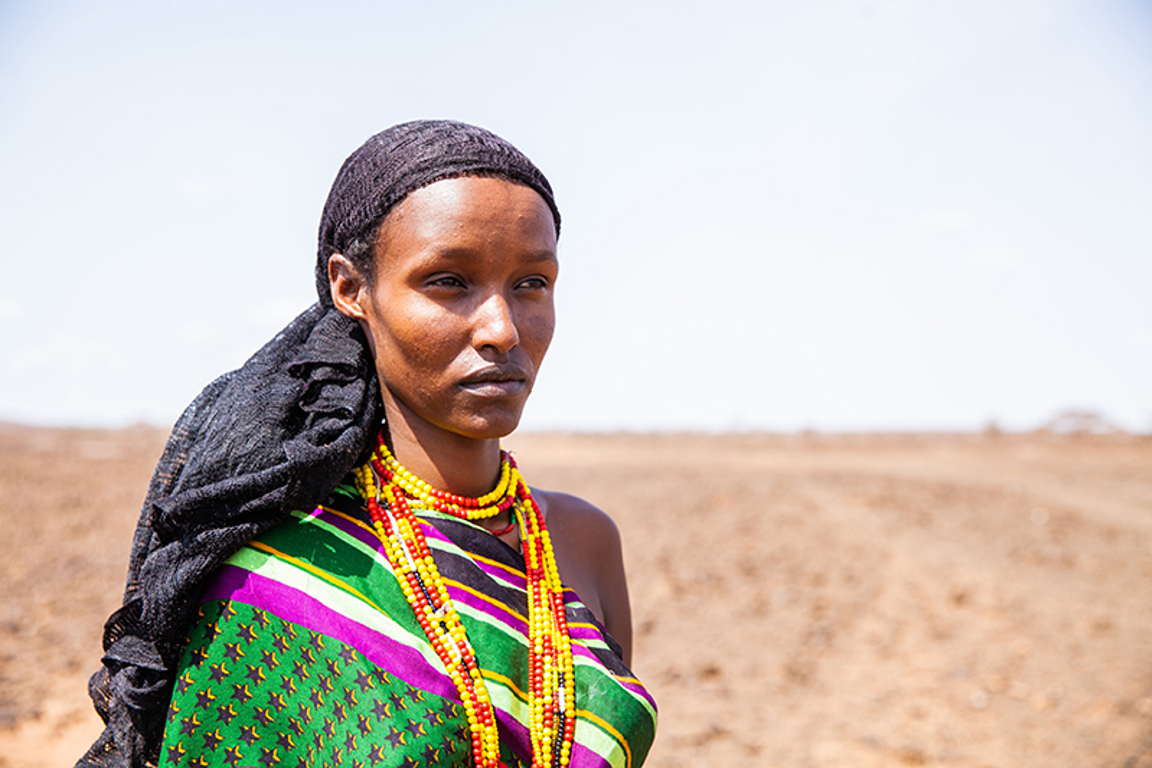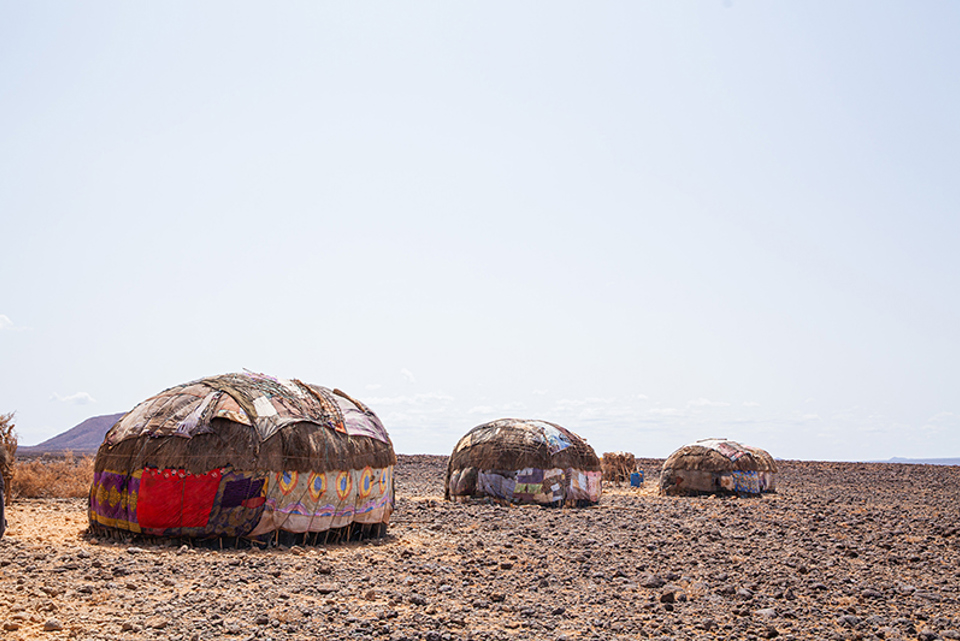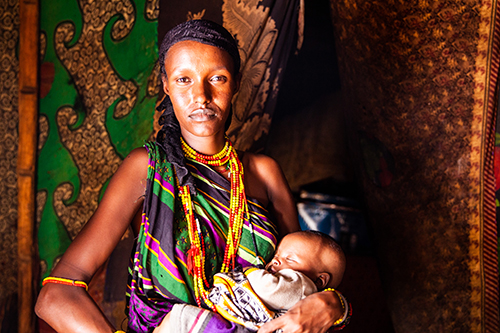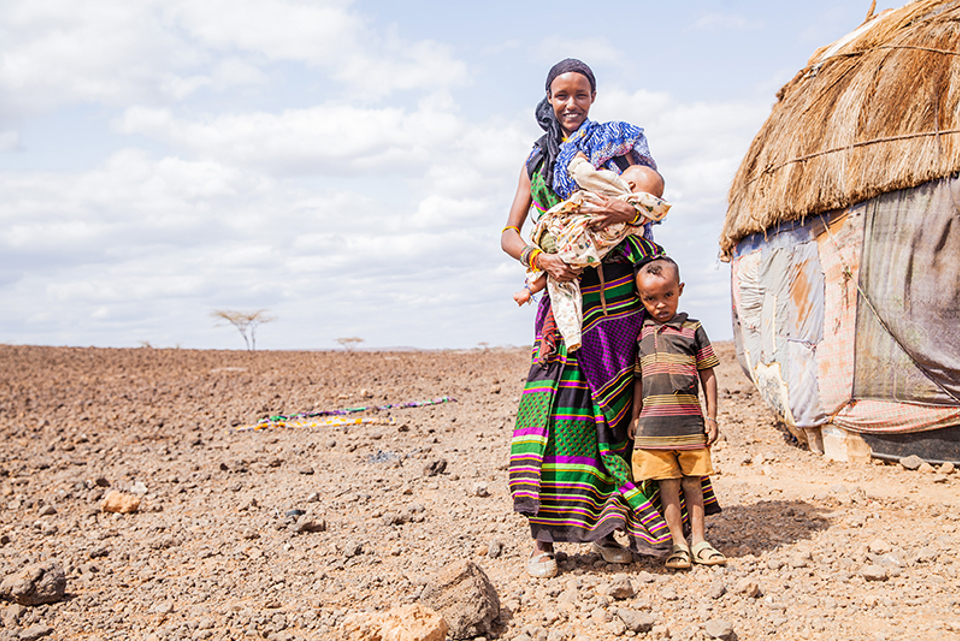Global Issues
Help Fight Hunger in Kenya
Ongoing extreme weather means Kenya is facing a severe food crisis that threatens to push millions onto the brink of famine.

Talaso is a mother of two living in Marsabit, northern Kenya. Photo: Thom Flint/CAFOD

Marsabit county in Kenya is experiencing an intense drought that has destroyed crops. Photo: Thom Flint/CAFOD
Food crisis in Kenya
The combined impact of drought, floods and food shortages is felt more severely by those who are most vulnerable – children, mothers and the elderly. High levels of malnutrition are rampant among communities, primarily pastoralists who rely on water to raise their livestock.
The drought has also exacerbated hardship and poverty, resulting in increased school dropout rates. Women and girls in particular walk for kilometres in search of water, exposing them to further risks. Torrential rains have caused devastating floods in the country leaving more than 3000 households displaced.
According to the World Food Programme:
Around 4.35 million people in Kenya are food-insecure and in need of humanitarian assistance.
Over 884,460 children under 5 years old are moderately or severely malnourished
“I live in Marsabit, I was born and brought up in Marsabit – and when we were young, about 40 years ago, drought happens but perhaps once in a decade, or maybe twice.
But now, hardly two years pass before you experience a severe drought or a dry spell. Now because of the drought the vegetation is getting debilitated in some of the areas that even if it rains, hardly any vegetation grows in these areas.”
Talaso’s story
Talaso is a 20-year-old mother living in northern Kenya. She and her husband lived comfortably, until the drought killed almost all the livestock they relied on to earn a living.
“When we were young, we didn’t have to stress, there were no droughts like this. We’d just take care of our livestock. Our lives were comfortable then,” Talaso said.
“The life now is so difficult. There is no food, there is no water, the livestock are no longer here. We used to have livestock and we used to sell the livestock and get food. Now everything is gone, and we have a very difficult life now.”

Talaso is a mother of two living in Marsabit, northern Kenya. Photo: Thom Flint/CAFOD
You can help fight hunger in Kenya
With the support of Caritas Catholic Diocese of Marsabit, mothers like Talaso can receive urgent support such as food aid and clean water.
Emergency Food Rations
Clean Water to Vulnerable Communities
Education for Vulnerable Children
Our partners on the ground are working to help vulnerable communities in Marsabit through:
Where does my donation go?
The funds you donate to this appeal go to Caritas Australia’s Emergency Response Fund and will be used to provide humanitarian assistance to communities affected by this crisis. Should circumstances prevent us from delivering aid to this emergency, or if excess funds remain after the crisis, donations will be directed to other emergencies where Caritas has humanitarian operations.

Talaso is a mother of two living in Marsabit, northern Kenya. Photo: Thom Flint/CAFOD












